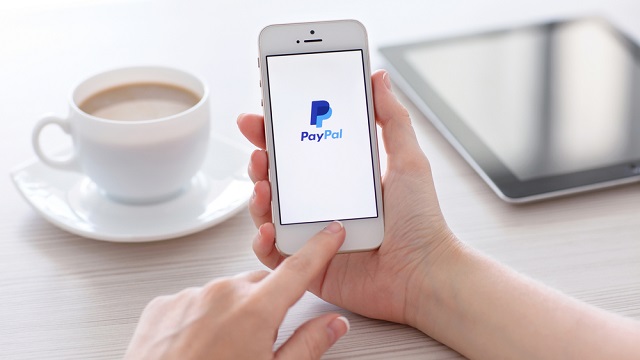
Did you know that digital payments company PayPal recently split from e-commerce giant eBay? The separation was announced last September, and this July, PayPal officially became an independent, publicly-traded company once again.
Since more than 169 million users have active accounts on PayPal, according to the company, all small business owners should be aware of the new circumstance in the competitive digital payments space, especially if they make or accept payments via the platform.
How will PayPal change?
When eBay owned PayPal, both companies were subject to certain restrictions. PayPal grew enormously because it processed so many eBay transactions. But PayPal could not work with eBay’s competitors. Now, the company “will enjoy added flexibility to pursue new market and partnership opportunities,” said the former CEO of the joint company, John Donahue.
As a standalone entity, PayPal will refocus primarily on being a digital payment platform, a place where both companies and individuals can safely send and receive money. (eBay will continue to be a marketplace for sellers and buyers.)
PayPal hopes to concentrate on user experience, both for sellers and buyers. With a broader range of potential partners, the company can look to accommodate the needs of a broad base, not just eBay sellers. That’s not to say that eBay transactions won’t be crucial to the business. eBay is required to send 80 percent of sales through PayPal.
What This Means for You
As a small business, you are likely to benefit from the increased competition in the digital payments processing space. PayPal can now collaborate with other big e-commerce companies, which were considered competitors to eBay. As the transition period continues, keep an eye out for benefits from PayPal and other processors that might make transactions easier, cheaper, or more efficient for you or your customers. These could range from lower fees for the seller to better smartphone apps for making mobile payments.
Between SmartCards with chips and secure mobile payments, there are big shifts coming in the digital payments space, both for online and brick-and-mortar businesses. Though PayPal isn’t a bank, in many ways it can act like one, providing credit to customers, accepting both credit card and transfer payments, and offering business support. For some small online businesses, the platform can be an all-in-one solution; if PayPal continues to refine its tools and support system for small businesses, you may find that the platform works for you.
What Your Business Needs to Do
Whether you use PayPal, eBay, or are considering signing up for one or the other, here are the steps to take.
…if you use PayPal
You should not notice anything dramatic. If you’re happy with PayPal as a payments processor, you may want to look into using other tools from their suite, which they have been building up to appeal to small businesses. Xoom and Braintree help with money transfers and accepting payments, and the company also has an invoicing system you can use directly through your PayPal account. Since part of the company’s strategy is to foster customer satisfaction, you—the customer—may be able to take advantage of targeted products and services.
…if you sell on eBay
For eBay sellers, not much will be different on the surface, either. The company will still be required to use PayPal for most transactions. However, without its valuable payments processor business, eBay may have to take a step back. If you signed up to sell on eBay a long time ago, you may want to consider the pros and cons of selling through another platform, like Amazon, Alibaba, or even Etsy, now that you’ll be able to use PayPal on more sites.
…if you’re looking for a new online payments systems
If you’ve been selling some goods on one of eBay’s competitors and haven’t had access to PayPal for some or all of your sales, then you may be able to reorganize and move your banking to PayPal. This is a competitive space, which means you have a lot of options for accepting payments, such as Apple or Square. Review fee structures and product support in order to decide if PayPal may be the right platform for you.
What’s Next for PayPal
Increased access to PayPal may help drive consumer acceptance of mobile payments, a change that’s been on the horizon for years already. Small businesses and skeptical shoppers who already know and trust PayPal may be more likely to feel comfortable making the switch with a brand they recognize than starting out with something new. PayPal has the advantage of storing payment information for so many account holders and the recognition of a brand that pioneered safe transactions back when the Internet felt like the Wild West.
Even if you don’t shift your digital or mobile payments processing today, you’ll want to stay up to date on the products and offerings of the newly independent PayPal over the next handful of years.